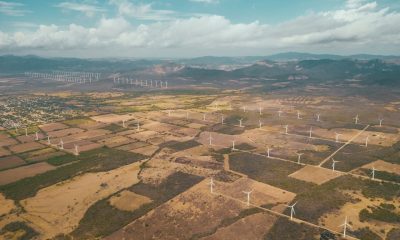Impact Investing
Greenhouse Gas Emissions in Italy Drop by 26% Compared to 1990, but the Transport Sector Remains Critical
Italy’s CO₂ emissions dropped 26% from 1990 levels, reaching 385 million tons in 2023, thanks to renewable energy and efficiency gains. However, transport emissions rose 7% since 1990, posing a challenge. ISPRA data highlights the need for targeted policies to curb transport emissions and meet European climate targets despite progress in energy and industry.

The adoption of renewable sources and the increase in energy efficiency favor the reduction of CO2 emissions in Italy. In fact, according to the latest National Inventory of Greenhouse Gas Emissions published by ISPRA, in 2023 greenhouse gas emissions in Italy recorded a significant reduction of 26% compared to 1990 levels, reaching 385 million tons of CO2 equivalent.
Compared to 2022, the decrease was 6.8%, an improvement attributed to the increase in energy efficiency, the growing use of renewable sources and the transition to low-carbon fuels in industrial sectors.
However, the transport sector remains a critical area, with CO2 emissions up 7% since 1990, mainly caused by road transport, which is responsible for over 90% of emissions in the sector. Despite European directives, road transport emission levels have remained constant since 2014, contributing to exceeding the maximum permitted ceiling, which in 2023 reached 8.2 million tonnes of CO2 equivalent.
Key sectors for CO2 emissions
ISPRA data shows that transport accounts for 28% of total national emissions, followed by energy production (21%), the residential sector (18%) and manufacturing (13%). These sectors contribute to more than half of national greenhouse gas emissions.
In 2023, the decline in emissions in the energy sector was driven by a significant reduction in manufacturing and construction industries (-45.2%) and in energy industries (-47.3%). This occurred despite an increase in total energy production, which rose from 216.9 TWh to 264.7 TWh, and an increase in electricity consumption, which rose from 218.7 TWh to 287.4 TWh.
Failure to contain emissions in transport represents a key challenge for meeting the objectives set by the European Effort Sharing regulation, which requires a 43.7% reduction compared to 2005 levels for emissions from non-ETS sectors (transport, residential, agriculture, waste and industry). In 2021, 2022 and 2023, Italy exceeded the maximum permitted ceilings, respectively of 5.5 MtCO2eq, 5.4 MtCO₂eq and 8.2 MtCO₂eq.
Despite progress in the industrial and energy sectors, ISPRA data highlight the urgency of targeted interventions to reduce emissions in transport and ensure that key sectors contribute to achieving European and global climate goals. The challenge now focuses on balancing innovation, sustainability and effective strategies to accelerate the path to climate neutrality.
__
(Featured image by Alexey Demidov via Pexels)
DISCLAIMER: This article was written by a third party contributor and does not reflect the opinion of Born2Invest, its management, staff or its associates. Please review our disclaimer for more information.
This article may include forward-looking statements. These forward-looking statements generally are identified by the words “believe,” “project,” “estimate,” “become,” “plan,” “will,” and similar expressions. These forward-looking statements involve known and unknown risks as well as uncertainties, including those discussed in the following cautionary statements and elsewhere in this article and on this site. Although the Company may believe that its expectations are based on reasonable assumptions, the actual results that the Company may achieve may differ materially from any forward-looking statements, which reflect the opinions of the management of the Company only as of the date hereof. Additionally, please make sure to read these important disclosures.
First published in ESG NEWS. A third-party contributor translated and adapted the article from the original. In case of discrepancy, the original will prevail.
Although we made reasonable efforts to provide accurate translations, some parts may be incorrect. Born2Invest assumes no responsibility for errors, omissions or ambiguities in the translations provided on this website. Any person or entity relying on translated content does so at their own risk. Born2Invest is not responsible for losses caused by such reliance on the accuracy or reliability of translated information. If you wish to report an error or inaccuracy in the translation, we encourage you to contact us

-

 Africa4 days ago
Africa4 days agoAir Algérie Expands African Partnerships
-

 Crypto2 weeks ago
Crypto2 weeks agoEthereum Pushes AI Integration With ERC-8004 and Vision for Autonomous Agents
-

 Business6 days ago
Business6 days agoDow Jones Near Record Highs Amid Bullish Momentum and Bearish Long-Term Fears
-

 Business2 weeks ago
Business2 weeks agoDow Jones Breaks 50,000 as Bull Market Surges Amid Caution and Volatility

























